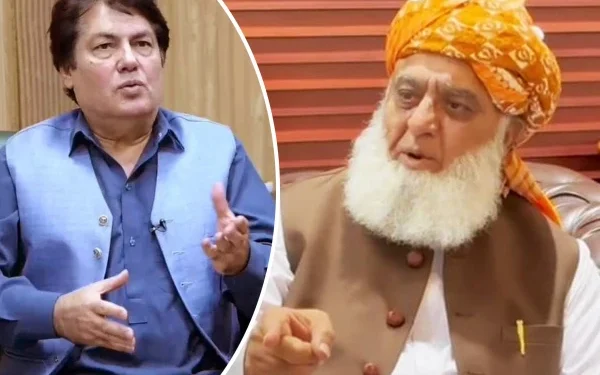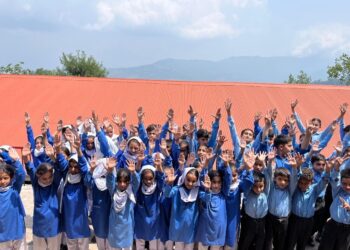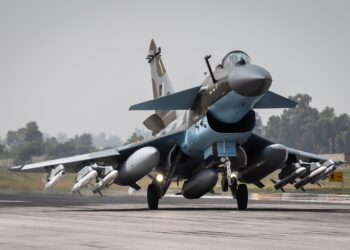Peshawar: In a strongly worded statement, Barrister Muhammad Ali Saif, the Spokesperson and Advisor on Information to the Khyber Pakhtunkhwa (KP) government, has challenged the opposition, particularly Jamiat Ulema-e-Islam-F (JUI-F) Chief Maulana Fazlur Rehman, to display moral courage by refusing the reserved seats allocated following the controversial court ruling. He claimed that the reserved seats were the constitutional right of the Pakistan Tehreek-e-Insaf (PTI) and criticized the legal and political maneuvering that led to their redistribution among opposition parties.
PTI’s Stance on Reserved Seats and Electoral Mandate
Barrister Saif reiterated PTI’s long-standing claim that the party was deprived of its rightful mandate in the 2024 General Elections through manipulation of Form 47, which tabulates final election results. He stated that not only was PTI’s electoral majority undermined, but the reserved seats, which are traditionally allocated based on proportional representation, were also unfairly awarded to other parties due to a judicial interpretation of the 26th Constitutional Amendment.
“Reserved seats are the rightful entitlement of PTI,” said Saif, “but these have now been put up for auction by the courts.”
Understanding Reserved Seats in Pakistan’s Parliamentary System
To grasp the significance of Saif’s statement, it’s important to understand the mechanism of reserved seats in Pakistan’s legislative framework. Reserved seats for women and minorities are allocated to political parties in proportion to the number of general seats they win in the National or Provincial Assemblies.
After the 26th Constitutional Amendment, the process was slightly amended, especially in regard to how these seats apply in newly merged tribal districts (former FATA regions). However, when the Election Commission of Pakistan (ECP) and judiciary disqualified the PTI’s candidates or party status in some areas, the reserved seats meant for PTI were redistributed among other parties, leading to national controversy and accusations of political bias.
Barrister Saif: “Law May Be Bound, But Moral Integrity Is Not”
According to Barrister Saif, while the law and court rulings are bound by constitutional amendments such as the 26th, moral courage is an entirely different matter. He argued that even if the courts allowed opposition parties to occupy PTI’s share of reserved seats, ethical politics demanded that such offers be rejected out of principle.
“If Maulana Fazlur Rehman and the opposition have even a shred of moral integrity, they should refuse to accept reserved seats that were never meant for them,” Saif emphasized.
He further added that the Islamic character and political ethics demand adherence to justice, and that opposition leaders should follow the example of Amir Haider Khan Hoti, a senior leader of the Awami National Party (ANP), who reportedly voiced concerns over the fairness of accepting such seats.
The Role of Amir Haider Khan Hoti: A Lone Voice of Conscience?
Barrister Saif praised Amir Haider Khan Hoti for his statement expressing reluctance to benefit from reserved seats at the expense of PTI’s representation. Though Hoti’s remarks have not led to a formal rejection of the seats by ANP, Saif welcomed his openness to debate the ethical implications of the court’s decision.
“Hoti has taken a morally strong stance. Others should follow,” said Saif.
This moment could be seen as a rare example of political self-restraint in Pakistan’s often cutthroat electoral politics.
Criticism of the “Imported Government” and Political Engineering
In his statement, Barrister Saif did not hold back in criticizing the current coalition government, which PTI has repeatedly labeled as a “fake” or “imported” regime. He accused it of using every available tactic—from judicial interventions to political coercion—to suppress PTI, but claimed that each attempt had only strengthened the party’s resolve and popularity.
“Despite these dirty tactics, PTI is stronger today than before. Attempts to silence us have only made us louder,” he declared.
He also alleged that the judiciary and state institutions had been complicit in political engineering, undermining public trust in the electoral process and democracy.
Fazlur Rehman’s Past and the 26th Constitutional Amendment
Saif further reminded the public that Maulana Fazlur Rehman had previously broken ranks with PTI during the passage of the 26th Amendment, which was designed to bring the merged tribal areas into the mainstream legislative framework of Pakistan. At the time, Fazlur Rehman and his party JUI-F opposed several clauses in the amendment, citing concerns about political representation and constitutional clarity.
“If Maulana Sahib could leave PTI during the constitutional amendment, now is the time for him to show moral courage again and refuse these unconstitutional perks,” Saif added.
Reserved Seats: Political Legality vs. Public Legitimacy
The debate over reserved seats has become a flashpoint in Pakistan’s post-election political landscape, with constitutional experts, journalists, and civil society questioning the legitimacy of redistributed seats. While technically legal under a narrow reading of the law, many argue that these decisions are politically motivated and undermine democratic norms.
Several PTI leaders have accused the judiciary of selective interpretation, claiming that it is part of a broader plan to dilute the party’s influence in both national and provincial assemblies.
Call for Institutional Reform and Democratic Accountability
Barrister Saif’s statement also indirectly calls for institutional accountability, particularly for the Election Commission of Pakistan (ECP) and courts. He urged opposition parties to recognize that ethical governance requires more than legal victories—it requires public trust and transparent politics.
He further stated that manipulation of legal frameworks to suit political ends erodes the credibility of democratic institutions, and that the people of Pakistan deserve fair and impartial electoral representation.
PTI’s Political Strategy Moving Forward
Despite the legal and institutional hurdles, PTI remains firm in its demand for electoral justice. According to party insiders, PTI is planning to internationalize the issue, seeking attention from global democratic forums, including the United Nations, Amnesty International, and other human rights watchdogs.
There are also whispers of nationwide protests, legal petitions, and diplomatic outreach to highlight what PTI describes as a judicial and electoral coup.
Conclusion: A Challenge to Political Morality
Barrister Saif’s fiery address was more than just political rhetoric—it was a call to conscience in an increasingly polarized political climate. By challenging opposition parties, especially JUI-F and Maulana Fazlur Rehman, to reject what PTI views as ill-gotten parliamentary perks, he sought to reframe the debate from one of legality to one of moral clarity.
Whether this challenge will be taken seriously by the opposition remains to be seen. But one thing is certain—the controversy over reserved seats is far from over, and it may define the ethical boundaries of Pakistan’s democratic evolution in the months to come.

























